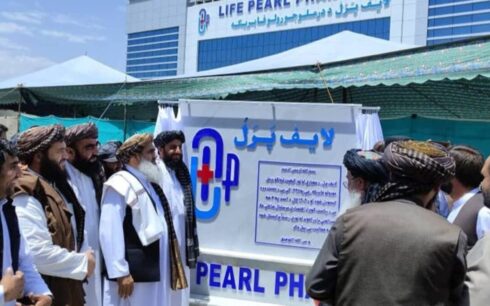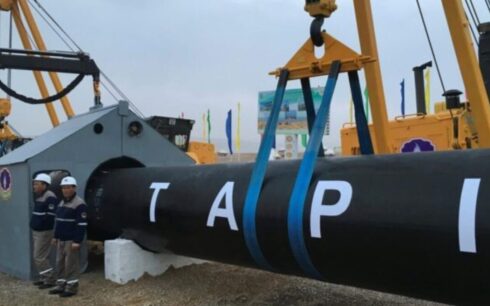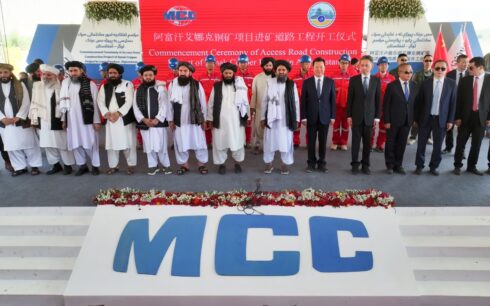On Saturday, the Taliban announced that an agreement for the Central Asia-South Asia Electricity Transmission and Trade Project (CASA-1000) had been signed among stakeholders, including Pakistan, Uzbekistan, and Kyrgyzstan. However, the specifics of the agreement were not disclosed, noting that the project had already been approved by the World Bank in 2014, with 18% of the Afghanistan segment completed.
Since 2006, various MoUs and agreements have been signed for moving the project forward.
The CASA-1000 project received approval from the World Bank board in March 2014, with funding provided by the International Development Association (IDA). However, its implementation in Afghanistan was suspended, and all related activities halted after the fall of the previous government.
Prior to the suspension, approximately 18% of the transmission towers for the Afghanistan segment of the CASA project had been constructed, and about 95% of the necessary materials and equipment for completion had been delivered, as per the World Bank’s reports.
The World Bank previously indicated that construction of CASA-1000 in Afghanistan would restart at the request of the three other participating countries. It also noted that the construction in Tajikistan, Kyrgyzstan, and Pakistan is nearing completion.
Taliban spokesman Zabihullah Mujahid stated the project, supported by the World Bank, is set to commence practical work in April this year.
“At the request of the three neighboring countries participating in the project, construction of CASA-1000 in Afghanistan will be resumed,” the World Bank reported. “CASA-1000 is a $1.2 billion regional initiative aimed at delivering clean energy from Tajikistan and the Kyrgyz Republic to Pakistan through Afghanistan.”
Funding for the CASA-1000 project was halted following the Taliban’s takeover of Afghanistan.
About CASA
The Central Asia-South Asia (CASA-1000) electricity transmission project, spanning 1,227 kilometers across Central Asia, aims to facilitate the transfer of surplus hydropower from Central Asia to South Asia’s electricity-deficient regions. Kyrgyzstan and Tajikistan, possessing surplus energy, will supply electricity to Afghanistan and Pakistan under this initiative.
With an estimated cost of around $1.17 billion, the project is a collaborative effort between the participating nations, following an intergovernmental agreement (IGA) established in 2008. An Inter-Governmental Council (IGC) was also formed for project development.
The primary objective is to convey approximately 1.3GW of surplus summer power from Kyrgyzstan and Tajikistan to Pakistan, routing through Afghanistan. Pakistan is expected to receive about 1GW, while Afghanistan will benefit from up to 300MW.
The construction includes a 477km, 500kV AC line from Datka in the Kyrgyz Republic to Khudjand in Tajikistan, covering 450km within the Kyrgyz Republic and the remainder in Tajikistan. Additionally, three converter stations in Tajikistan (Sangtuda), Pakistan (Peshawar), and Afghanistan (Kabul) will facilitate the AC to DC power conversion and vice versa.
The project specifies a 500kV, 50Hz AC system in Tajikistan and Pakistan, whereas Afghanistan will utilize a 220kV, 50Hz system. A 120km, 500kV single-circuit AC line will link Regar and Sangtuda substations in Tajikistan, channeling the export power to the Sangtuda converter station.
Moreover, a 750km, 500kV high-voltage DC (HVDC) line from Sangtuda to Nowshera (Pakistan) will be installed, featuring a 1.3GW transmission capacity in both directions through a bipolar and earth-return configuration. This line will extend for 120km in Tajikistan, 560km in Afghanistan, and 70km in Pakistan.
Funding for CASA-1000 involves seven institutions, with significant contributions from the World Bank through the International Development Association (IDA). The World Bank Group is providing $526.5 million, supplemented by other lenders including the Islamic Development Bank ($155 million), the European Bank for Reconstruction and Development ($110 million), the European Investment Bank ($180 million), the UK Department for International Development, the Afghanistan Reconstruction Trust Fund ($40 million), and the US Government. Additionally, bilateral financing includes $11.5 million from the United States Agency for International Development and $46 million from the UK Department for International Development, with Pakistan contributing the remaining $101 million as one of the recipient countries.





